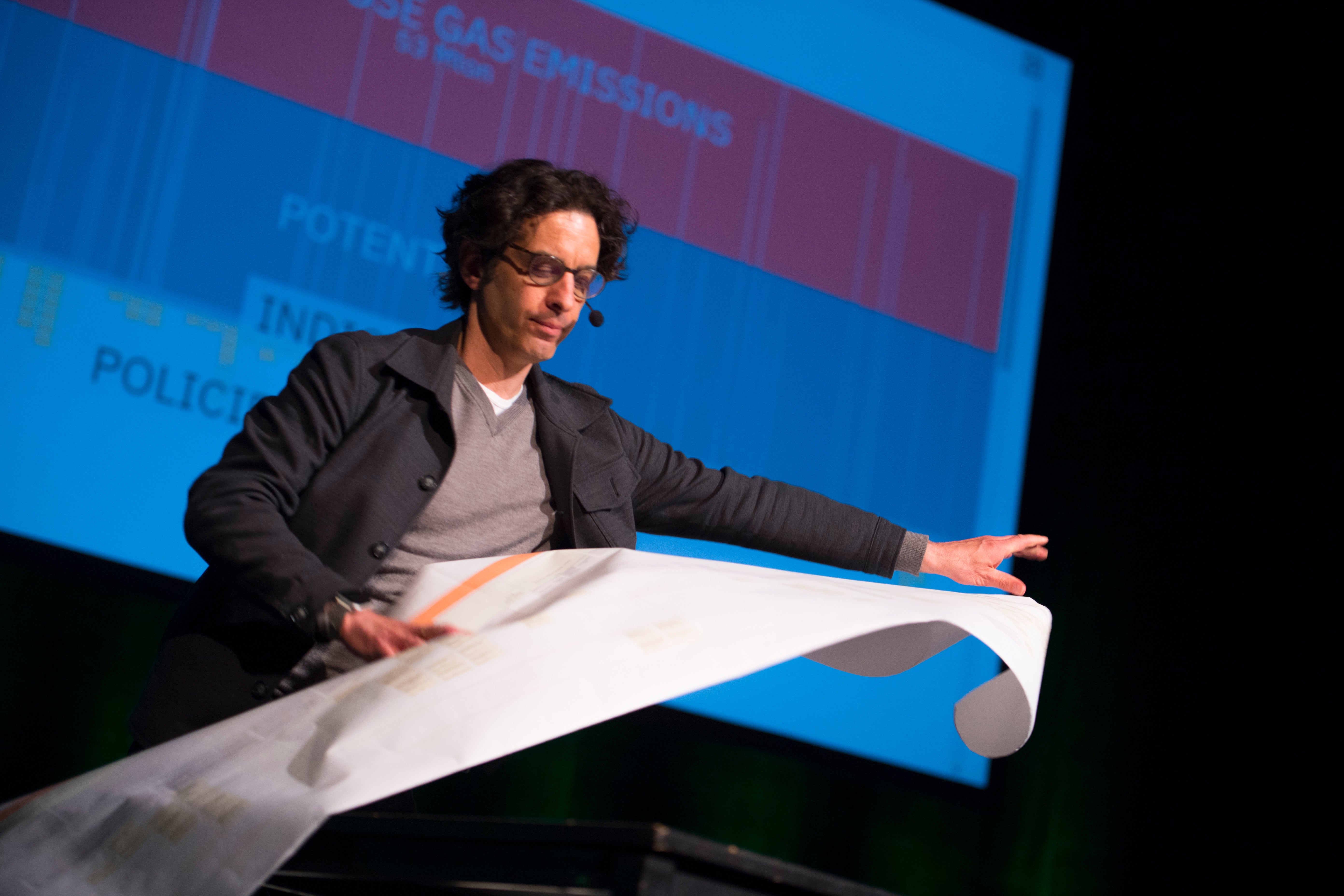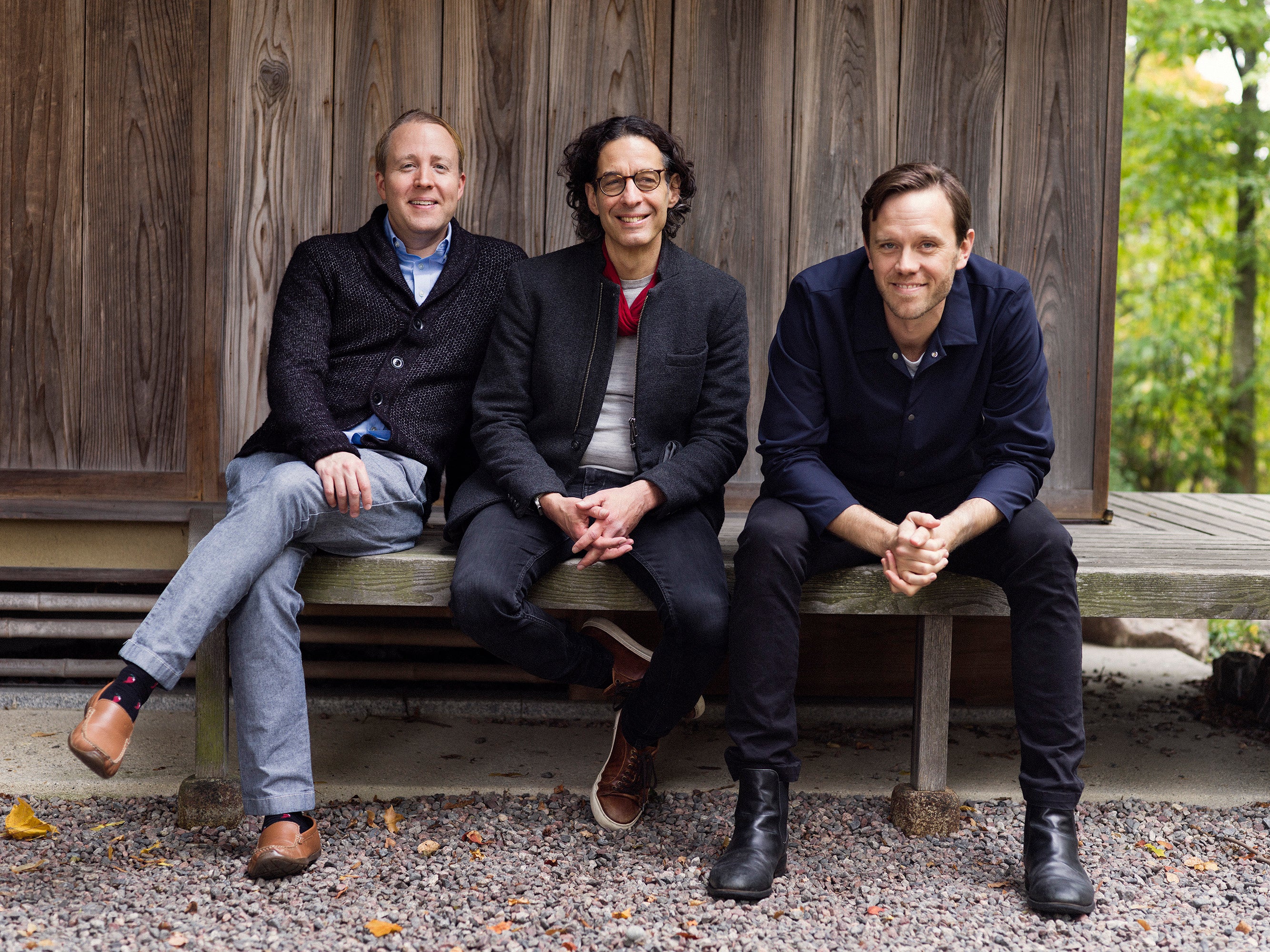How ClimateView is helping cities transform their climate planning
Not only are cities responsible for 70% of the world’s emissions, but they control a majority of the investments needed for transition. Tomer Shalit is focused on helping them to reach net zero, writes Heather Martin


There’s light within the dark clouds on the horizon, according to Sweden’s Tomer Shalit, founder and CPO of climate action technology company ClimateView.
In February 2021, Shalit – with co-founders Jeff Goens (CEO) and Einar Bodström (CGO) – launched the ClimateOS platform, a sophisticated tool that helps cities transform climate planning into tangible progress on the ground (and in the air). In September, they secured ten million euros in venture capital funding, enabling them to forge partnerships with Britain’s Carbon Disclosure Project and Microsoft.
The company was created in 2018 and now has around 60 employees split evenly across product development and sales. ClimateOS is used by over 100 cities the world over, with Newcastle and Nottingham among the early adopters.
“We’re doing this for the climate,” Shalit says. His business background convinced him to harness the pressure of a start-up to scale up fast. “To make a difference we need to scale so that more people can use the software. We just have to make sure that our business model is 100 per cent aligned with impact.”
Shalit was born to a Scottish mother and an Israeli father; his great-grandfather was visionary town planner Sir Patrick Geddes. His father gave him a programmable calculator when he was nine – even as a boy, Tomer was into “structure and hierarchy and how things interconnect”. He was into theatre too, and took a gap year from his Swedish high school to attend the Italia Conti school in London, which taught him “how to stand there and talk”. He is expressive, with an energy that crackles even over Zoom.
After school, he moved north to Umeå “to be near the mountains”, where he was recruited to teach at the Umeå Institute of Design. Later, he would return on a research post. In between, he ran a start-up in virtual reality and medical simulators. He still didn’t have a degree. “My academic career was backwards,” he said. “I didn’t start studying until I was thirty.”
It was then that he decided to back up his real-world experience with a degree in applied mathematics. “I remember my first exam, sitting there for five hours with sandwiches and twenty questions to answer. I hadn’t been allowed to be that focused for my entire life. It was such a profound experience.”
Now, Shalit specialises in agile solutions: “how to build things when you have a clear goal, but the way to reach that goal can’t be defined at the outset because there are many different stakeholders and too many unknowns”. Around five years ago “the climate monkey” on his shoulder “started tapping hard”, and he quit his job in software development for an IT company in Stockholm. “If this agile thing is so good,” he reasoned, “why am I spending my life helping banks and insurance companies to slightly better profit margins instead of applying this concept, which is about solving complex problems in an ever-changing solutions space, to the most important of all complex problems?”
Sweden was setting ambitious targets for 2045, and in a “humbly megalomaniac” moment, that ambition rubbed off on Shalit. “What if I was the ‘agile coach’ for Sweden? What if I said: ‘prime minister, I’ll be your agile coach and help Sweden towards its net zero goal?’”
Which is exactly what he is doing.
Tomer reaches off-screen and produces what looks like a bundle of telephone directories, only with titles like Fossil Freedom On the Roads and The Way To a Climate Positive Future. The Swedish government had done their homework, “and yet this – this is not operational”. He shakes the clutch of parliamentary reports at me reprovingly. “As soon as it’s written, it’s outdated.”
Cities are the driving force, so if we give them a platform where they can collaborate, with a framework and a model, that is how we can achieve the biggest impact for the world
Shalit took this “dead data” and built a database that would serve as “a taxonomy and ontology” of climate transition: “a precise way of naming things, and how they sit together”. In effect, he was building the first ClimateView prototype.
“Hang on,” he says, and scoots briefly out of view. He reappears with a four-metre-long poster summarising the essence of all that bookish data: Sweden’s emissions and strategies broken down into “transition elements”, including key performance indicators and the actions already in place to make the big transition happen. In a masterstroke of compression, he had condensed both problem and solution onto a single (admittedly rather long) piece of paper. It helped that there was a lot of empty space under solutions. But the implied belief was unwavering.
Shalit gatecrashed some government event (“Sweden is a very open society”), went up to the environment minister’s chief of staff and unrolled his poster on the floor, saying: “What do you think of this?” The chief of staff gave him some phone numbers. There followed “a fantastic dance” with the government, consisting of Shalit showing people his poster and everyone getting seriously excited. “One of the guys was head of the traffic department and he said, ‘it feels like you’ve drawn the inside of my brain’.” But much like that hefty bundle of reports (one of which the traffic guy had written), this was just the beginning. “Everyone was like, this is really good, but whose job is it? We have all these silos, but who is in charge of the biggest societal change of all?”

As it happens, the timing was perfect. Sweden had just inaugurated its Climate Policy Council, a parliamentary group with responsibility for oversight modelled on the British Committee on Climate Change, and Shalit was already doing business with Vattenfall, the energy company committed to introducing fossil-free living within a generation.
He showed his magic poster to the head of strategy, who took it straight to the council, plus the heads of the environmental protection and energy agencies, and said something like: “we think Sweden should do this dashboard of its transition, we’ll meet you halfway on funding – and, by the way, we have a start-up here that can do the job.”
ClimateView had three months to build “Panorama”, which was launched in 2019. It’s now a pillar of the council’s homepage, encapsulating Sweden’s entire climate policy in managed transitions with the information refreshed every two weeks in both Swedish and English. In place of the old written reports, which “become heavy and don’t want to change”, there is now “a living climate action plan”.
The trick was to effect a shift in mindset, persuading the government to accept that a continually updated “best guess” is good enough to be getting on with. Whereas biofuels were only recently perceived as the optimal solution for personal vehicle transportation, now, just a few short years later, “the rate of electrification is way higher”.
The next breakthrough was to home in on cities. Not only are cities responsible for 70 per cent of the world’s emissions, but they control a majority of the investments needed for transition: “how we transport ourselves, how we build our buildings, how we handle our waste – all these things are concentrated in cities”. And unlike companies, which are secretive, cities are keen to pool their knowledge: “that’s how they get their brownie points. Stockholm, Nottingham, Heidelberg: they all face the same challenges.”
But cities were “completely under-served by tools”. If they wanted help, they had to hire a costly external consultant, reinventing the wheel each time. “Cities are the driving force, so if we give them a platform where they can collaborate, with a framework and a model, that is how we can achieve the biggest impact for the world to meet the Paris agreement.” It’s all about efficiency and economy of scale.
A solutions-focused approach keeps a firm eye on the bigger picture, where transition “nearly always represents a positive return on investment” and you can “clearly see the way ahead”. But inevitably, there are winners and losers along the way. Shalit cites some simple examples.
For individual owners, the affordability of an electric vehicle is an immediate incentive; the city has to invest in charging infrastructure and therefore loses out, but can expect to recoup in health care as cleaner air lowers the levels of asthma. New cycle paths are likewise on the city’s balance sheet, but the benefits of people cycling safely to work and getting exercise on a daily basis are instant and measurable. Conversely, a landlord might retrofit a building, thereby lowering energy costs but driving up rent; tenants will gain in the long term, but at the cost of short-term pain. “At lower levels there are these inhibiting frictions, but the better you see things coming, the better you can model them and the better cities can prepare, finding more powerful ways to guide our policies and financing.” The cost of inaction is catastrophically greater.
Tomer is a kayaker, not a mountain climber. On his first-ever trip, he and his friends set out from the border stone between Sweden and Norway, then paddled around the coast till they came to the border stone between Sweden and Finland. It took 57 days, a distinctly personal indicator of Shalit’s passionate dedication to the living planet. I don’t know if he’ll save the world, but I fully expect that poster to end up in a museum someday.




Join our commenting forum
Join thought-provoking conversations, follow other Independent readers and see their replies
Comments